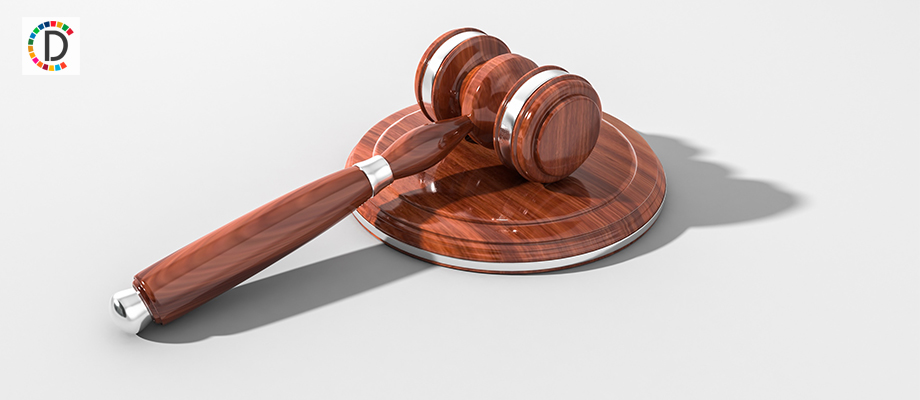AgustaWestland money trail likely to uncovered after extradition of middleman

- Country:
- India
The middleman in the AgustaWestland chopper deal Christian Michel James may prove to be the missing link in the money trail in the alleged multi-crore scam being probed by the CBI.
A proposal for the Rs 3,600 crore helicopter deal to ferry VVIPs was initiated in 1999 to find an alternative to the IAF flying horses of Soviet-era -- Mi-8s.
Several factors such as the inability of the choppers to operate at night, in adverse weather, and safely at places in elevation beyond 2000 metres besides their technical life getting over were primary reasons that the IAF decided to replace its eight Mi-8 helicopters used for ferrying VVIPs like the President, the Prime Minister, the Vice President and the Defence Minister.
The then NDA government under Atal Bihari Vajpayee floated a global Request for Proposal in March 2002 for the acquisition of 12 helicopters for VVIP duties to which four companies responded.
Three were shortlisted by the Technical Evaluation Committee and subjected to flying tests but AgustaWestland's contender EH101 was not certified to fly at 6000 m and it did not participate in the evaluation.
After flight evaluation, EC-225 of Eurocopter, France was found suitable for acquisition by the government.
A meeting took place under the aegis of the principal secretary to Vajpayee on November 19, 2003, where it was decided that since VVIPs rarely travel at 6000 m height, the ceiling should be reduced to 4500 m which could avoid single vendor problem and give more alternatives to choose from.
The principal secretary also wrote a stern letter to the IAF chief on December 22, 2003, that the PMO and the prime minister's guarding force SPG were not consulted before setting mandatory parameters for selecting the VVIP choppers.
This reduction in ceiling became the primary allegation in the corruption case in the helicopters' deal which was signed by the Congress-led UPA government in 2010.
The UPA government deliberated upon and incorporated the changes suggested by the principal secretary. It floated another proposal in which three companies namely Sikorsky, USA AgustaWestland, UK and Rosoboronexport, Russia responded to the RFP.
The Russian company was ruled out over the issue of earnest money leaving only Sikorsky and AgustaWestland in the race.
They were subjected to flight tests in the US and the UK respectively and AgustaWestland choppers were selected for the deal.
The CBI has alleged that the then IAF chief SP Tyagi played a role in recommending the reduction in the operational ceiling of the helicopters from 6000 m to 4500 m which brought AgustaWestland in the race.
It has alleged that the IAF was strongly opposed to changes but when Tyagi became the chief, he recommended these.
This, according to the agency, was allegedly done at the behest of Finmeccanica and AgustaWestland's top executives who engaged the services of three middlemen-- Michel, Guido Haschke and Carlos Gerosa who allegedly paid bribes to Tyagi and his cousins Rajiv, Sandeep and Julie.
The agency has alleged that firms of Michel received about 42.27 million Euros, approximately seven per cent from the companies to swing the Rs 3600 crore deal in their favour.
The bribes were allegedly routed through companies of Michel and advocate Gautam Khaitan in the form of multiple contracts through layered transactions to camouflage them.
The money trail, however, is believed to be incomplete and the CBI will need statements and questioning of Michel to fill the gaps to link Tyagi with payments from Finmeccanica and AgustaWestland, officials said.
Michel on his part has alleged that the CBI team wants him to take names of Gandhi family, a claim which had been refuted by the agency.
The CBI had filed its charge sheet in September last year naming Tyagi, first chief of the Indian Air Force to face corruption charges, and his cousins, Indian middlemen and companies accused.
Along with them, five foreigners -- the then Finmeccanica chief Giuseppe Orsi and AgustaWestland's Bruno Spagnolini and middlemen Michel, Haschke and Gerosa were also named.
After the case was registered in 2012, Michel had escaped from India and did not join the investigation, CBI's spokesperson said.
A non-bailable warrant was issued by a special Delhi court followed by an Interpol Red Corner Notice in 2015 which led to his arrest in February 2017 in Dubai.
After a Dubai court cleared his extradition rejecting all his contentions, the UAE government gave its nod to his extradition after which he was brought to India by a team of CBI led by Joint Director Sai Manohar, who was part of the SIT once led by Special Director Rakesh Asthana.
(With inputs from agencies.)
- READ MORE ON:
- AgustaWestland
- Anneliese Michel
- Michel Côté
- Michel Foucault
- Allegation
- Arrest
- Broom
- Company
- Companies House
- Telephone company
- CBI led by Joint Director Sai
- Sikorsky and AgustaWestland
- Christian Michel
- Christian Michel James
- Congress led UPA
- 6000 m to 4500
- Michel
- Agusta
- Westland
- Business News










